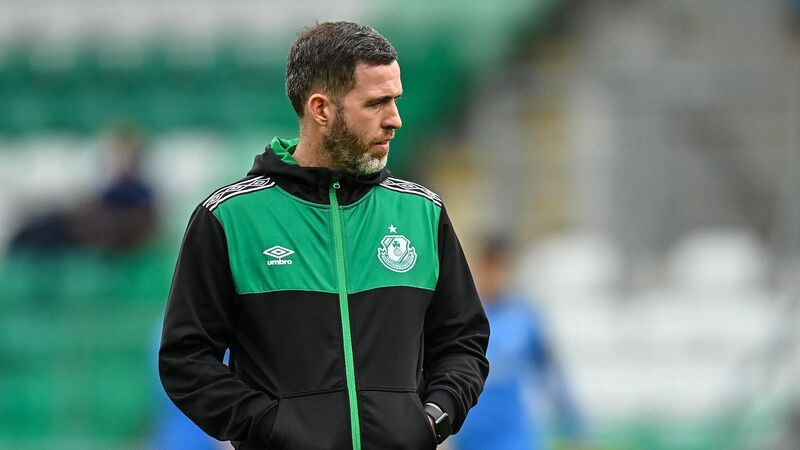Tommy Martin: How a different approach is benefitting Shamrock Rovers

DIFFERENT APPROACH: Shamrock Rovers manager Stephen Bradley. The plan was to build a club, not just a team. Pic: Ramsey Cardy/Sportsfile
It’s Tuesday and we’re at the Roadstone Sports and Social Club on the outskirts of Dublin where a bus awaits to take Shamrock Rovers into Europe. Players are picking the remnants of lunch from their teeth, kitmen are hauling skips of gear and the manager, Stephen Bradley, is brushing his hair.
The Roadstone Club was built in 1968 for workers in the nearby quarry, set up in the 1930s by a couple of brothers from Inchicore. That company met Irish Cement in 1970 and begat Cement Roadstone Holdings, now one of the biggest building materials suppliers in the world.









